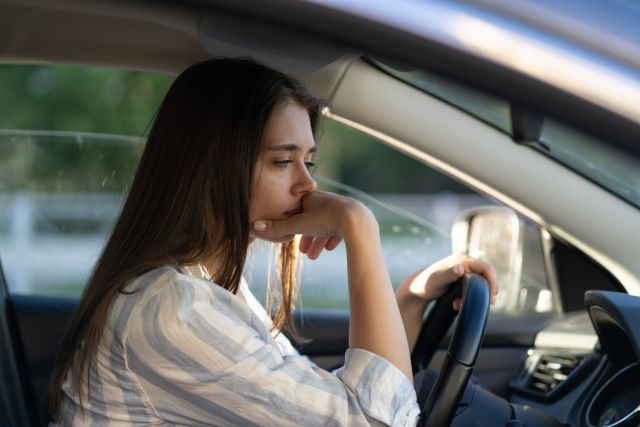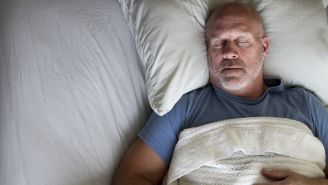Updated on November 10, 2022.
If you ever find yourself having trouble remembering the last few turns you made while driving, you might want to pull over. It could be a sign that you're too drowsy to drive.
Driving while drowsy is far more common—and more dangerous—than you might realize. Nearly one in every 25 U.S. adult says they have fallen asleep behind the wheel in the previous 30 days, according to the Centers for Disease Control and Prevention (CDC). And it’s not just a nuisance: Drowsy driving puts you and those around you at serious risk of injury or death.
Almost 10 percent of car crashes happen when people fall asleep or begin to doze off while driving, according to research by the American Automobile Association (AAA). And CDC figures show that about 6,000 fatal crashes every year are the result of driving drowsy.
To help reduce the risk of this very preventable health hazard, it’s important to understand if you are at a higher risk for falling asleep while driving and to learn to recognize the signs of sleep deprivation.
Sleep and the road
Contrary to what you might think, it doesn’t take intense sleep deprivation to increase the odds you’ll have an accident when driving. According to the AAA Foundation, getting between five and six hours of sleep makes you nearly twice as likely to have a crash as you would after getting the recommended seven hours a night. Get less than four hours of sleep and your risk can go up by as much as 11.5 times.
The next time you’re considering getting behind the wheel while tired or trying to psych yourself up to push through those last miles on a late-night road trip, think again. Drowsy driving negatively impacts your decision-making skills, reaction time, and attentiveness. In fact, driving when too fatigued is nearly equivalent to driving while intoxicated.
According to the Sleep Foundation, if you drive after being awake for 18 hours, reaction time and hand-eye coordination are about the same as if your blood alcohol content (BAC) was 0.05 percent. This is the equivalent of a 155-pound woman drinking almost two glasses of wine and hopping into a car. If you’ve been awake for 24 hours, it would be comparable to driving with a BAC of 0.1 percent. That’s equivalent to nearly four glasses of wine for a 155-pound woman—and over the legal BAC limit in most states.
Don’t power through
Researchers suspect that many motorists simply don't recognize the signs that they're too drowsy to safely drive. Or worse, many drivers simply assume they can out-muscle their drowsiness and force themselves to stay awake on road. But feeling sleepy is just as dangerous as being sleep deprived, research shows. Both are associated with a dramatic increase in crash-related critical injuries or death due to falling asleep at the wheel.
Even though you don’t feel exhausted, be aware of symptoms like tired eyes, constant yawning, a foggy brain, and a nodding head. These are clear signs that you're too sleepy to drive safely. There are also a few other, less obvious, clues you may be at risk for falling asleep at the wheel. These include:
- Frequent squinting and blinking
- Missing turns or exits along your route
- Having difficulty picturing previous turns or stretches of road
- Hitting the rumble strip on the side of the road
- Daydreaming or restlessness
Additional risk factors
There are additional factors closely linked to drowsy-driving crashes, including lack of light and stimulus. According to the National Highway Traffic Safety Administration (NHTSA), drowsy-driving accidents are most likely to occur in the late afternoon or between the hours of midnight and 6 a.m. when your circadian rhythm naturally dips, causing sleepiness. People are also more likely to crash at night when they are in the car alone and when driving on rural roads and highways.
You are also more apt to be caught dozing while driving if you:
- Are a younger driver
- Have slept less than six hours the night before
- Are a shift worker or professional driver
- Have a sleep disorder
- Have consumed any alcohol or take medications that can make you drowsy
Don’t take the chance
If you have symptoms of fatigue while driving, don’t count on an energy drink or coffee to keep you awake. These tactics may give you a short-term boost in alertness but can also leave you susceptible to dangerous “micro sleeps”—where you nod off for just a few seconds—according to the NHTSA.
While you may not notice a quick loss of consciousness, a few seconds are enough to cause an accident, particularly during highway driving. If you must complete a drive while sleepy, pull over, park your car, and grab a 20-minute nap in a safe place. Better still, find a motel and get a full night’s sleep before continuing your trip.







